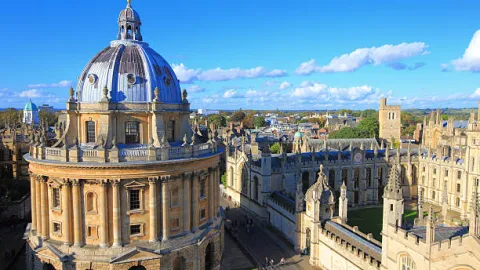The UPC and Democracy
January 20, 2021
Today (20 January 2021) seems to be a perfect day to celebrate democracy and the rule of law.
I will therefore not keep you up for too long, but just wanted to make a short personal comment and a call to all of us discussing the UPCA and the latest events in Germany regarding the ratification process and the two new constitutional complaints. I am perfectly aware that this is perhaps the most controversial current topic in the European IP Community, with passions running high both among the supporters and the opposers of the UPC Agreement. There is a wide spectrum of voices, one part arguing that there is absolutely no need of any Unified Patent Court in Europe, another supporting the view that a supranational Patent Court may be desirable in principle but take issue with its implementation currently provided in the UPCA and a third vocal group that seems to be prepared to happily welcome any kind of UPC, be it with or without the UK, Poland, Spain, Hungary etc. Fortunately, we have freedom of speech in Europe, and everybody is entitled to his or her own views and to make them known to others.
What I would urge people, though, is some degree of rhetoric deescalation when we are discussing this matter.
Some comments on this and other IP blogs seem to be trying to paint the Federal Constitutional Court's decision to ask for another deferral of the UPCA ratification in the darkest possible colors, as if it were an assault on democracy itself. On the respected JuVe blog, an opinion has just appeared under the headline: "A drawn-out UPC process would damage democracy”. It urges the FCC to decide on this matter quickly.
Why the haste? The article provides essentially two reasons. The first one is, however, hmm... how shall I put it politely? ... hearsay:
This is because, from what JUVE Patent hears from sources close to those involved, the complaints contain hardly any new aspects. No-one other than the complainants, the court and the other constitutional bodies have yet seen the complaints – not even the JUVE Patent editorial team.
So somebody has seen the complaints and seems to be of the view that they "hardly contain any new aspects". Fair enough, everybody is entitled to their views, but should the Federal Constitutional Court really prioritize one case over another for such a reason? If the reasoning of these "sources" was so compelling, why then did the FCC not throw out the complaints immediately?
The second reason appears more forceful to me. It is "because the German parliament has already deliberated and voted on the laws twice. Only very few members of the parliament criticised or opposed the UPC during the debates in the Bundestag or Bundesrat." This is certainly true, at least if the term "deliberated" and "debates" are given the broadest possible interpretation (I watched the debate, but this is for another day...). Nonetheless, even the most thorough deliberation and informed debate does not exclude that the final bill violates the constitution, and the Federal Constitutional Court is there to assess exactly this. This is the Rule of Law.
While I agree with Mr Klos on JuVe that it would be highly desirable that the FCC decide on these complaints as soon as possible, I would certainly not go as far to urge the Court to prioritize this case over others - there is a world outside patents and I lack the insight into the bigger picture to determine what is the most urgent matter on the table. Besides, as I repeatedly wrote, there is a non-negligible possibility that the entire system of judicial review in EP patent cases may need to be overhauled due to the four other constitutional complaints the earliest of which was filed in 2010 (!).
But in any case, I would be extremely careful with arguing my case using language like this:
Ultimately, at a constitutional level, the will of the people still comes first. The majority in both chambers was overwhelming. Furthermore, a majority of the German business community remains in favour of the UPC.
This is because it risks that the Federal Constitutional Court will, as the next step, be accused of acting against the "will of the people", if it does not decide as quickly as some people want.
A pillar of our democratic state is the Rule of Law, which requires and presupposes independent judges. This can at times be inconvenient and can sometimes take painfully long. But if and when our highest Court were accused of acting against the "will of the people" (and against the "majority of the business community", if the FCC came to the "wrong" conclusion, horribile dictu) or when the speed of a decision on the UPC is stylized as "damaging democracy", we are entering dangerous territory and start using the language of those whose very intent is to undermine these valued democratic institutions.
So let's celebrate democracy today. Whether or not the UPC will come, and whenever, it will not be the end of democracy in Europe.
You may also like















MaxDrei
Bravo, Thorsten. Let's not lose sight of the attitude of the BREXIT-supporting part of the British newspaper press, in relation to judicial scrutiny of PM Johnson's efforts to shut out scrutiny by the sovereign Westminster Parliament. On the front page of the D**** M*** , the judges of the UK Supreme Court were called out as the "Enemies of the People". Is this what the proponents of the UPCA are urging too? I do hope not but it does seem so. Invoking the will of "the people" is always a warning sign.
Fragender
Mr. Bausch, thank you for your commentary! When I read the Juve-Patent commentary, I was surprised that now democracy will be damaged, if the BVerfG does not throw out the complaints quickly. IMHO, the only way the BVerfG could damage democracy is, if it does not deliberate (and decide) thoroughly - after all, there are enough open questions (some of them named or hinted on in the first decision). Of course, as you said, today is a good day to celebrate democracy, and I hope from now on it happens less often, that presidents (or others) say a court has "no wisdom, no courage" or it would "damage democracy" just because it decides not as (speedy as) they wish. Interestingly enough, right now the article is no longer visible on Juve-Patent, but it still can be found using the search function...
Concerned observer
Well said Thorsten. I would like to add that there could be an ethical dimension to this saga. The UPC's strongest supporters (who undoubtedly include lawyers amongst their ranks) have started to wheel out arguments that, at best, can be described as very one-sided. This brings to mind what happened with the previous complaint. As I recall, the UPC's supporters argued long and hard that the earlier complaint should be (immediately) dismissed. Also, on numerous occasions, they (confidently) predicted that this is precisely what would happen. Sadly, the fact that UPC's ardent supporters clearly got things very wrong on the first occasion does not appear to have prompted them to adopt a more neutral, balanced and open-minded approach on this occasion. For example, basing arguments upon (highly opinionated!) hearsay really is taking things too far. (This is setting aside the fact that the quoted "sources" cannot possibly know anything about the content of the complaint unless they have been received information either from the complainants - which seems highly improbable - or from the FCC, which absolutely should not happen.) Moreover, it does not matter if there is nothing "new" in the two complaints. This is because, as I pointed out in the previous thread, the ground discussed in paragraph 166 of the FCC's earlier ruling could, on this occasion, PERMANENTLY prevent Germany from ratifying the UPC Agreement. The only surprise here is that this issue was not taken more seriously when the new law was drafted (and then passed by Germany's legislative chambers). Which all brings me back to the ethical dimension. Lawyers have an obligation to act in the best interests of their clients, and to provide them with impartial advice. It seems to me that a lawyer meeting these obligations might well conclude that, on balance, those questioning the constitutionality of the UPC (and/or its validity under international law) have reasonable, potentially even winning arguments. Such a lawyer would certainly also acknowledge that, even if the UPC does see the light of day, there is a chance that it is underpinned by laws that contain inherent (and potentially fatal) flaws ... thereby making it a system that, at least in the short to medium term, might be best avoided by the holders of particularly valuable patents. On the other hand, it is of course difficult to satisfy the ethical and professional obligations to one's client if one is unwilling to assess the legal situation from a sufficiently neutral standpoint (or even, it seems, to acknowledge reality).
Der Nörgler
I think one of the main problems is the lack of transparency. The UPCA has gone through the legislative instances of parliament and council (Bundesrat), but now the president is holding off signing it into effect to enable Germany to ratify. That's understandable if there are genuine concerns from the FCC. The difficulty is that only a rarified circle knows what those concerns are. As it says in the article "No-one other than the complainants, the court and the other constitutional bodies have yet seen the complaints". The will of the people, expressed by legislation having been passed by the elected Parliament and the council, is being prevented from coming in to effect for unknown reasons. Both democracy and the rule of law rely on the citizens having confidence in the respective branches executing their functions with propriety. Its impossible to have that confidence when something is done by way of a gentleman's agreement behind closed doors (call from the FCC to the president). Such an opaque system is clearly open to abuse. As the saying goes, justice does not just need to be done, it needs to be seen to be done. It would be much better if the complaints, and the FCC's (provisional) concerns, were made public. Then all could see that the will of the legislator has not just been stopped arbitrarily. I generally question the secrecy that surrounds proceedings in the German courts, especially proceedings in the FCC. It contrasts markedly to other countries. For avoidance of doubt, I think the likelihood that the FCC or the President is being capricious or nefarious in this instance is tiny. My concern is with the process. And as we've seen elsewhere, poor processes can be exploited by the ruthless. And as a final point, I think we here in Germany have become a bit arrogant in considering our systems better than elsewhere, and have become too un-critical of ourselves. For all that works well (and there is lots), we are also the land of Dieselgate (have we got to the bottom of it? Have the car companies been called to order?) , Wirecard (look how the regulator pointed the finger at the foreign papers etc who were airing suspicions, rather than investigating Wirecard thoroughly), Loveparade (process timed out), world cup 2006 (did any investigation happen here?), Oury Jalloh (that should send shivers down everyone's spine), child abuse in religious institutions (contrast with how thoroughly these have been investigated in eg Ireland, Australia, USA). Sometimes I feel we just want to brush everything unpleasant, or embarrassing to those in high places, under the carpet.